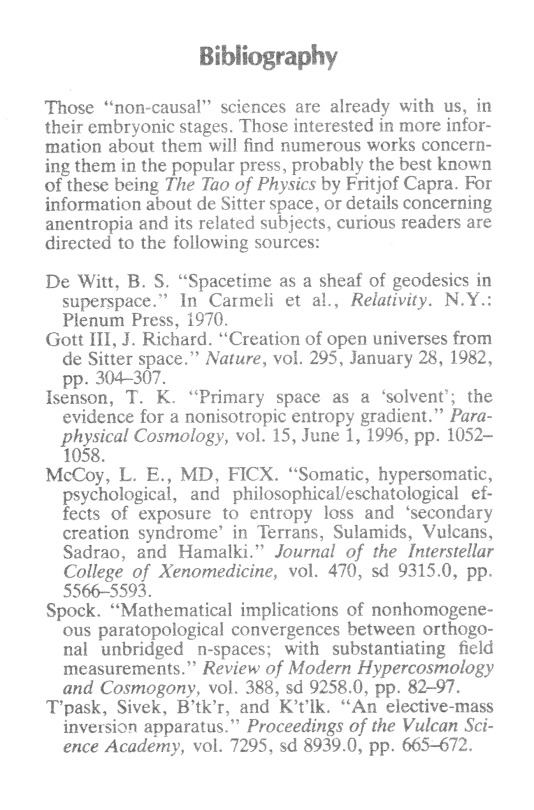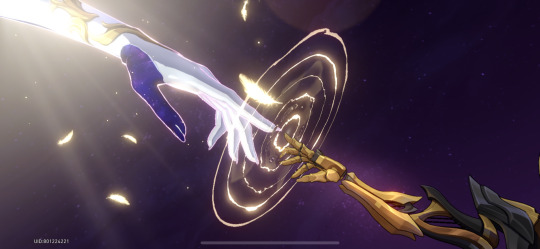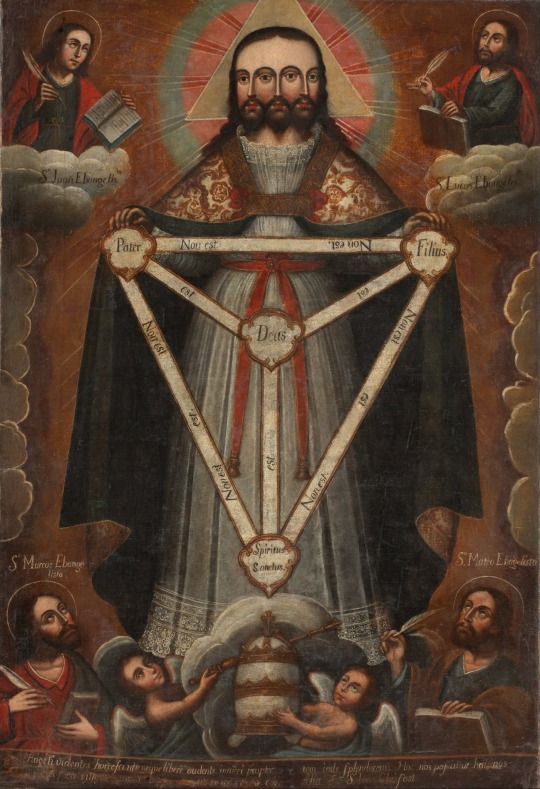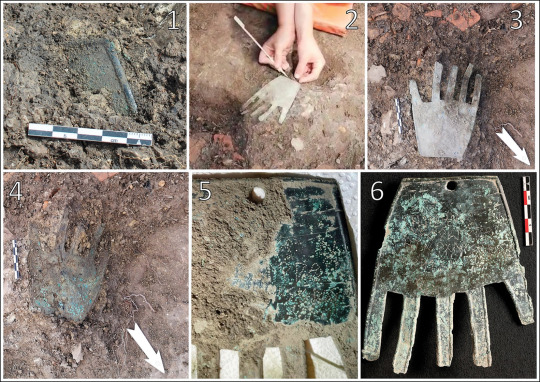#Latin Names of Elements
Text
Formatio Verborum Latinorum / Formation of Latin Words
Fluorum -i n. “Fluorine”
[fluor “flow” + -us adjectival suffix]
[fluor- + -o-] stems
[fluoro-] new stem
[fluorus] masculine nominative singular
[Fluorum] neuter nominative singular
(Fons Latini Nominis Elementi.)
#Formation of Latin Words#Fluorine#Fluorum#Names of Chemical Elements#Names of Elements#Latin Names of Chemical Elements#Latin Names of Elements#latin#latin language#latin translation#lingua latina#tagamemnon#latin fandom#latin meme#latin memes#meme#memes#Word Formation#Latin Word Formation#greek meme#greek memes#Greek#Greek language#Greek translations#lingua graeca
2 notes
·
View notes
Text
hahaha, the new Eibon Map is so large, I can't even upload it to tumblr! Discord can't handle its file size, nor can google, wonder where I could possibly host the image? Oh well, here's the old map with the incorrect hex sizes and with the Far East/Jinwa and Kihara on the map before they were split off into their own continents seperate from Eibon.

#ttrpg#I don't want anyone complaining about the names of Kihara and Jinwa#The people who actually speak those languages came up with them so I nodded and agreed with their ideas#For some reference Jinwa is the one in the top right with the classical element names and Kihara is the kinda-tropical island at the bottom#In our current version Jinwa has been spun into its own continent which takes cues from lots of differing asian cultures#the classical elements theme is still there but it isn't as all-consuming as it was in this first draft#Kihara is our group's work at making a latin/south american fantasy setting inspired by the really colorful myths that folks have#Eibon in general is more based off mythology and culture than say dnd fantasy tropes#three guesses who was obsessed with mythology books as a kid
3 notes
·
View notes
Text
20 Victorian-era names for girls
Adelaide: Derived from the Germanic name Adalheidis, meaning "noble" or "of noble birth."
Beatrice: Derived from the Latin name Beatrix, meaning "she who brings happiness" or "blessed."
Charlotte: Of French origin, meaning "free" or "petite."
Clara: Derived from the Latin word clarus, meaning "clear" or "bright."
Edith: Derived from the Old English name Ēadgyð, meaning "prosperous in war" or "blessed."
Eleanor: Derived from the Old French form of the name Aliénor, meaning "bright," "shining," or "light."
Florence: Derived from the Latin name Florentia, meaning "flourishing" or "prosperous."
Genevieve: Derived from the Old Germanic name Genovefa, meaning "woman of the race" or "tribe woman."
Georgiana: Feminine form of George, meaning "farmer" or "earth-worker."
Harriet: Derived from the French name Henriette, meaning "home ruler" or "ruler of the household."
Isabella: Derived from the Hebrew name Elisheba, meaning "God is my oath" or "devoted to God."
Josephine: Feminine form of Joseph, meaning "God will add" or "God increases."
Lillian: Derived from the Latin name Lilium, meaning "lily" or "pure."
Matilda: Derived from the Germanic name Mahthildis, meaning "mighty in battle" or "strength in battle."
Penelope: Of Greek origin, meaning "weaver" or "duck."
Rosalind: Derived from the Germanic elements hros, meaning "horse," and lind, meaning "soft" or "tender."
Victoria: Derived from the Latin word victoria, meaning "victory" or "conqueror."
Winifred: Derived from the Old English name Winefrið, meaning "friend of peace" or "blessed peacemaking."
Prudence: Derived from the Latin word prudentia, meaning "foresight" or "wisdom."
Clementine: Derived from the Latin name Clemens, meaning "merciful" or "gentle."
More names

#writeblr#writer things#writersociety#writers#writers on tumblr#on writing#writerscommunity#creative writing#writblr#writing#writings#writers and poets#writer#writing prompt#writing advice#writing tips#writing community#writing inspiration#writing stuff#writer tips#writer problems#writer stuff#writer on tumblr#writer community#write#ao3 writer#writers block#names#character names#naming
3K notes
·
View notes
Text
Pluto generations
Aries (1823 - 1851)
The presence of Pluto in Aries defines a generation marked by a pioneering and assertive spirit, reflecting a profound longing for independence. Those influenced by this placement often take on key roles in instigating social change and revolutionizing established systems. Historical events from 1823 to 1852, such as the Wars for Latin American Independence, the First Opium War, and the Women's Rights Convention, exemplify the transformative impact of this astrological configuration.
Taurus (1852 - 1881)
Pluto's position in Taurus defines a generation characterized by unwavering perseverance, determination, and a profound connection to the material realm. These individuals prioritize stability, security, and the sustainable use of resources, leaving a lasting imprint on economic systems and environmental consciousness. Notably, during Pluto's transit in Taurus, the Industrial Revolution surged forward, marked by the rise of corporate structures in industries like railroads and steam engines.
Gemini (1882 – 1913)
The generation under the influence of Pluto in Gemini witnessed the dawn of the Second Industrial Revolution, aptly named the Technological Revolution. These individuals, marked by intellectual curiosity and adaptability, excelled in communication and media, significantly shaping cultural and technological progress. The era marked the birth of influential figures like John Maynard Keynes and Benito Mussolini, along with German scientist Robert Koch's identification of the tuberculosis bacterium. Notably, the First World War occurred during this period, bringing significant changes in all areas of life.
Cancer (1914 -1938)
Pluto in Cancer signifies a generation characterized by deep emotional sensitivity, nurturing instincts, and strong family values. Living through World War I, the Spanish flu pandemic, and the Great Depression, they grew up in a challenging era that shaped their conservative outlook. This generation, often referred to as the "Greatest Generation," prioritized family, spirituality, and adherence to societal norms. While their emphasis on politeness and chivalry had positive aspects, it also gave rise to dark elements such as sexist gender roles, racial segregation, and cultural supremacy.
Leo (1939 – 1958)
Pluto in Leo defines a generation marked by a quest for self-expression, creativity, and a hunger for recognition. Born during historical events like the Nazi invasion of Poland and the Battle of Stalingrad, these individuals challenged authority, imprinting their influence on art, entertainment, and leadership styles. Ruled by the Sun, Pluto in Leo symbolizes a fresh start after periods of war and chaos, fostering a sense of self-value and confidence. This prideful, generous, and naturally leadership-oriented generation, however, tends to resist change and stands firm in their philosophies as a fixed sign.
Virgo (1957 – 1971)
Pluto in Virgo defines a generation marked by a robust work ethic, practicality, and an innate drive for perfection. Born during pivotal events such as the first documented AIDS cases and Martin Luther King Jr.'s iconic "I Have a Dream" speech, these individuals contribute to societal shifts in health, wellness, and environmental consciousness. Ruled by Mercury, Pluto in Virgo emphasizes efficiency and hard work, fostering reliability, trustworthiness, and empathy. This generation focuses on rebuilding and technology, epitomizing an era of research and preparation, notably during the Cold War.
Libra (1972 – 1983)
Pluto in Libra defines a generation marked by a profound yearning for harmony, justice, and equality. With Venusian qualities, these individuals are inherently social, compassionate, and value connections with others. The events during their time, such as the end of the Vietnam War, the introduction of VHS, and the rise of personal computers, align with their commitment to justice and duty for the collective. This generation, while not necessarily seeking radical societal reshaping, is more focused on preserving law and order, offering assistance to those in need, and rectifying wrongs through the pursuit of justice.
Scorpio (1984 – 1995)
Pluto in Scorpio defines a generation marked by intensity, depth, and profound transformation, playing a pivotal role in societal shifts related to power dynamics, sexuality, and psychological exploration. While the preceding Pluto in Libra generation advocated for balance, Pluto in Scorpio pushed the limits, ushering in events like the Gulf War, the end of the Cold War, and the advent of the World Wide Web. Resilient and empowered, they navigated constant transformations, developing a keen ability to adapt and thrive through each metamorphosis. This generation also contributed to a shifting cultural perspective on sexuality.
Sagittarius (1996 – 2008)
Pluto in Sagittarius shapes a generation marked by a thirst for knowledge, cultural exchange, and a global perspective, contributing significantly to societal shifts in education, philosophy, and belief systems. This generation, embodies the archer's bravery and fearlessness, fostering a spirit of rebellion and outspokenness. Sagittarius' affinity for networking and socializing with individuals from various nations aligns with the rise of the internet, a tool that facilitates global connectivity. Key events during this period include the successful cloning of Dolly the sheep, the introduction of the Euro to financial markets, and the groundbreaking launch of the iPhone in 2007.
Capricorn (2008 – 2023)
Pluto in Capricorn defines a generation marked by ambition, pragmatism, and a distinct focus on challenging traditional structures, leading to transformative changes in politics, business, and governance. Ruled by Saturn, this era, encompassing events such as the launch of Bitcoin, the Syrian civil war, Edward Snowden's revelations on mass surveillance, and the COVID-19 pandemic, unfolded amidst the Great Recession and the rise of social media. The influence of Saturn instils a commitment to rules, regulations, and social changes that align with a desire for structure and order.
Aquarius (2024 – 2044)
Pluto in Aquarius heralds a generation marked by innovation, individuality, and an impassioned pursuit of freedom and social progress. The current era unfolds amid a new global order, carrying both anticipation and uncertainty. Emerging from the constraining Capricorn era, Aquarius brings a promise of hope, healing, and a future-focused mindset.
Pisces (2044 – 2067)
Pluto in Pisces gives rise to a generation marked by empathy, spirituality, and a deepening of the collective consciousness, contributing to societal shifts in compassion, art, and transcendence. As one era concludes and another begins, this period signals the resurgence of spirituality, with people connecting profoundly to the universe through meditation and prayer. Anticipated as a peaceful time with minimal conflict, technological progress may temporarily slow after the Aquarius era's boom. This wise generation is poised to challenge traditional norms, potentially leading to the disappearance of gender roles, marking a significant chapter in human evolution.
#astro observations#astro community#astro placements#all signs#astrology#astro notes#astrologer#for you#zodiac placements#pluto#planets#predictive astrology#astrology notes
703 notes
·
View notes
Note
Sorry if you’ve answered this before, but any tips on improving your technobabble?
I originally came at this problem from two different directions. The first one took considerably more time to enable.
(a) Be familiar (or get familiar) with the languages in which most scientific terms are coined: Latin and Greek.
I took Latin in high school, already knowing that I was a science person and that Latin was considered "the language of science". (And medicine, which also turned out to be handy for me later.) I also started studying Greek in college—and, sigh, I'm still studying it.
Once you're starting to get familiar with the languages, practice coining terms as you need them. While it's considered a failure of style in scientific naming to mix Latin and Greek in the same term, I've found it better to be guided by euphony than a slavish obedience to the rules.
Because sometimes a word or term just sounds right. "Temporospatial claudication", for example, was coined by running a Latin physics term head-on into a medical one. "Claudication" was (and still is in some countries) a term for a constriction in a blood vessel. Its origin in the Latin claudo- and clausum roots is responsible for the Emperor Claudius's name, which would once have implied somebody who limps secondary to such a circulatory problem. I simply bent the term's most basic meaning off into a different direction.
...So you see how that goes. Bang the roots together and see what successfully sticks.
The second approach is a little easier. But only a little.
(b) Base your coined terminology on the conventions and rhythms of real technobabble: by which I mean actual, technical scientific language.
The best way to pick this up in sufficient depth is by reading technical papers in your field of interest—lots of them—so you can see how the pros communicate to/with one another. Every field has its own jargon lying around just begging to be stolen... assuming you observe very carefully how it's correctly used. Otherwise you risk outing yourself as nothing but an interested but insufficiently-committed bystander. You must also be super careful not to screw with the interior grammar of such techspeak... as inevitably it'll have one.
For example: when I was tooling up for writing The Wounded Sky, I spent easily three months reading papers in/on hyperdimensional physics. (Not that I wouldn't have done this anyway. It's a fascinating subject, and before I went into nursing I'd been a physics major, so I had a fair amount of the necessary background to understand what I was reading.) Even in the 80s there were a lot of such papers around, and in those distant pre-Internet days I was helped a whole lot by living just across the road from the impressive science library at Cal State Northridge.
During that period I could be found in the periodicals racks once or twice every week, digging through the monthly journals on the hunt for material that would be germane to the plot I was boiling. I found ten times more goodies than I ever could reasonably have used. The toughest part was winnowing it all down to what I actually needed to scatter here and there for atmosphere's sake, or to plant in specific spots to grease the plot's wheels. (My favorite remains the [legit!] paper with the delightful title, "Taub-NUT Space as a Counterexample to Almost Anything.")
Anyway, I must have got something about that whole business right, since one Princeton physics professor whose work I'd cited at the end of the novel asked me if he could use it in teaching his classes. :)
But there's a third element involved; more an attitude that you apply to what you've produced while employing the first one or two approaches.
You have to treat your coined terms as if they're absolutely real... something that any person educated in the science you're working with would know. The voice and tone in which you write using them has to reflect this absolute confidence and commitment to their reality. Because if you don't—at least while you're writing—absolutely believe in them enough to speak confidently about them, no one else will believe in them either.
But then that's a solid general principle anyway. If you don't do something you've created the courtesy of taking it seriously enough to believe in it (or its reality inside the larger reality you're creating), it won't long survive contact with exterior realities like the inside of your reader's mind.
HTH!
ETA: here's that citation page from the end of Wounded Sky. I believe it remains the only Star Trek novel with a cites list at the end. :)

605 notes
·
View notes
Text
One of the light-touch worldbuilding/storytelling/dramatic irony moments I really enjoy in Fallout: New Vegas is everything to do with Aurelius of Phoenix, the Legion Slavemaster operating Cottonwood Cove. Nested bit here, right? On first glance it seems like psuedo-Latin gibberish, something grandiose but divorced from meaning, like a lot of the Legion guys- but then you do the double take and realize it's a cognomen, a nickname Romans would receive based on great achievements or conquests-e.g. Scipio Africanus- and that implicitly this is the guy who helped sack the actual former city of Phoenix in Arizona. Stealth Future-imperfect trope, disguised at first glance because "Phoenix" is already a kind of grandiose mythologic-sounding word. And when you realize that, right, it's suddenly very funny, for the same basic reason The Republic of Dave is funny- grandiose terminology juxtaposed with a mundane name from the world we recognize. If it were Aurelius of Boise, Aurelius of Cincinnati, right, there are cities you could use in the pairing that would cause it to parse as much more of an explicit gag. So now it's silly in the way everything about the Legion is silly. But then it wraps back around to actually kind of unnerving, because first off, basically it's an offhand implication of something very nasty having gone down in Phoenix, A City From Real Life That We Recognize, in order for him to have gotten a whole Cognomen out of it. And second, it's obviously not a coincidence that his name doesn't sound dumb. Caesar isn't gonna let a subordinate quote-unquote "earn" a cognomen unless it's useful to him, unless it enhances the brand somehow, and having a guy named "Aurelius of Phoenix" walking around, well, it does do that! It feels calculated. It's not the kind of name that's downstream of cultural decay and half-remembered information. It's another example of how Caesar micromanages his slave army down to their very names, and how he lifts random superficial elements of Roman culture on an ad-hoc basis without integrating any of it on a deeper level. A lot going on, with this one guy's goofy name!
#fallout new vegas#caesar's legion#late night posting so not fully endorsed#but yeah there's a lot going on here#fallout#fnv#fonv#thoughts#meta
669 notes
·
View notes
Text
Naming Fantasy Races, Step-by-Step
1. Understand their characteristics
What's special or different about them? Define their attributes—consider the physical, magical, and cultural traits of the race.
Determine their societal structure, beliefs, and history.
2. Choose a base word
Use elements from mythological roots or existing folklore and literature.
Draw from nature, such as "aqua" for water-based creatures or "sylvan" for forest dwellers.
Look at words from Latin, Greek, or other ancient languages for inspiration, such as "lupus" (Latin for wolf).
3. Find appropriate prefixes and suffixes
Examples of common prefixes:
Drac– (dragon)
Lycan– (wolf)
Syl– (forest/nature)
Aqua– (water)
Examples of common suffixes:
–kin (family, race)
–folk (people)
–ari (noble or magical)
–shade (mystical or ethereal)
–borne (born of or origin)
4. Combine & modify
Merge the base word with your chosen prefix or suffix and, if need be, adjust it to make for better pronunciation. For example, you might combine "sylvan" with "-ari" to create "Sylvari".
Mix parts of words to invent new, unique terms.
5. Ensure uniqueness
Once you've come up with a name, I suggest checking its uniqueness with a quick search to ensure the term isn't already widely used in popular media.
6. Contextual integration
Integrate the term into the lore and history of your world. How did this race come to be known by this name?
Consider the cultural significance. Think about how other races view them versus how they view themselves.
Here are a couple examples to get a better idea of how you might choose to go about it for different creatures:
Forest dwellers:
Base word: Sylvan (related to forests)
Suffixes: –ari, –folk, –kin
New terms: Sylvari, Sylvafolk, Sylvakin
Water-based beings:
Base word: Aqua (water)
Suffixes: –nix, –morph, –ari
New terms: Aquanix, Aquamorph, Aquari
Don’t be afraid to combine unexpected elements for a fresh take, and keep the cultural nuances within your world in mind when coming up with a suitable term. A race’s name might change based on who is using it or the context.
Hope you find this helpful! Happy writing ❤
#writeblr#writing#writing tips#writing help#writing resources#creative writing#fantasy#fantasy writing#fantasy worldbuilding#mythical creatures#fantasy race#deception-united
168 notes
·
View notes
Text
Masc. victorian names for your book
Augustus: Meaning "majestic" or "venerable," this name reflects the grandeur and dignity associated with the Victorian era.
Clement: Derived from the Latin word "clemens," meaning "gentle" or "merciful," it represents virtues valued during the Victorian era.
Leopold: Of German origin, meaning "bold people," this name has a regal and strong connotation.
Ambrose: A name of Greek origin meaning "immortal," it suggests enduring qualities and perhaps a touch of the romantic.
Percival: With Arthurian legend ties, this name means "piercing the valley" or "pierce the vale," signifying a sense of adventure and nobility.
Thaddeus: Of Aramaic origin, meaning "heart" or "courageous," it reflects qualities admired in Victorian times.
Archibald: Of Germanic origin, meaning "genuine" or "bold," this name conveys strength and authenticity.
Edmund: Derived from Old English, meaning "wealthy protector," it embodies the Victorian emphasis on familial and societal values.
Reginald: Meaning "counsel power" in Old German, this name suggests wisdom and authority.
Gilbert: Of Germanic origin, meaning "bright pledge" or "shining pledge," it carries a sense of loyalty and promise.
Montgomery: Derived from Norman French, meaning "Gumarich's mountain," it has an aristocratic and sophisticated feel.
Humphrey: Of Germanic origin, meaning "peaceful warrior," it combines strength with a sense of peace.
Alfred: Of Old English origin, meaning "elf counsel" or "wise counselor," it reflects the Victorian admiration for wisdom and guidance.
Rupert: Of Germanic origin, meaning "bright fame," it suggests a sense of distinction and honor.
Lancelot: With Arthurian legend associations, this name means "servant" or "attendant," representing loyalty and chivalry.
Ephraim: Of Hebrew origin, meaning "fruitful" or "productive," it embodies prosperity and abundance.
Barnabas: Of Aramaic origin, meaning "son of consolation" or "son of encouragement," it conveys a nurturing and supportive nature.
Horatio: Of Latin origin, meaning "timekeeper" or "hour," it reflects a sense of order and discipline.
Clarence: Of Latin origin, meaning "bright" or "clear," it suggests clarity and distinction.
Winston: Of Old English origin, meaning "wine's town" or "joy stone," it combines elements of conviviality and strength.

#writeblr#writer things#writersociety#writers#writers on tumblr#on writing#writerscommunity#creative writing#writblr#writing#writings#writers and poets#writer#writing prompt#writing advice#writing tips#writing community#writing inspiration#writing stuff#writer tips#writer problems#writer stuff#writer on tumblr#writer community#write#ao3 writer#writers block#names#character names#naming
384 notes
·
View notes
Text
All Catholic References with Sunday (that I could find)

Well, for starter, I found lots of Catholic references with Sunday, and by extension, some elements in Penacony and even Xipe the Harmony. I feel like I have to write this down and post this. It's the reason this post exists.
Warning, this post will have extensive Bible quotes and religious references. If you are uncomfortable, please ignore this post.
Also, because I could only play the story only once and cannot go back to re-read the story, there will not be screenshots to everything.
Finally, spoilers of the newest Penacony trailblaze quest ofc
1. The name
Sunday's name is Sunday, and as you know, this is the day that is dedicated to God and most Christian (including Catholics) go to church to worship God. Sunday, right before he called upon the machine that he rode to become the weekly boss for the first time, he called it "Dominicus". This comes from the Latin word for Sunday "dominica", which means "the Lord's day". "Dominica" itself came from "Dominum, which means "Lord" or "the Lord". Even though the data bank calls the boss "Harmonious Choir" the Great Septimus, the detailed description of the boss still says "Dominicus".
If you search on the internet, you may find that the Latin word for Sunday is dies solis (which means the day of the sun). But that word was used in the pre-Christian era. Dies solis was changed to dominica after Christianity became the state religion of the Roman Empire in the 4th century. Till this day, English and other Germanic languages still call the first day of the week "day of the sun" in their respective languages, while other Romance/Latin languages call the first day of the week "the Lord's day", such as Portugese - domingo, Spanish - domingo, Italian - domenica, French - dimanche, etc.
2. Sunday's physical angelic features
Sunday was born a Halovian, a species in Star Rail universe well-known by their angelic iconography, having "halos" over their heads and white wings on the back of their heads. Although currently, only Sunday and Robin are shown to have wings, while other Halovian NPCs don't have them.
3. Confession

This one, I believe, is quite obvious, with Sunday acts like a priest hearing confessions of the people who came to him for guidance and a free-from-guilt conscience in what seems to be a confession booth.
4. "The creation of Adam"
Remember the cutscene with the boss in 3rd phrase reaching out the hand and touches another hand coming down from the sky.

It''s inspired by this

"The Creation of Adam" or "The Creation of Man" is a fresco painting by Michelangelo for the ceiling of the Sistine Chapel in early 16th century. This painting depicts God outstretching his right hand and finger towards Adam, the first man. This is mirrored and reversed by Sunday outstretching his right hand and finger from below toward the hand appearing from the sky. It is mirrored because in the original fresco, it is God reaching out for human with his right hand and Adam reaching out with his left hand, while in the game, the mysterious hand is a left hand while Sunday reaches out with his right hand. It is reverse because in the fresco, it is God who reaches out for human, while in the game, it is Sunday, a mortal, reaching up for the deity. However, we still don't know to whom that hand in the cutscene belong, I have compared that hand with both Xipe's and Ena's in their models, and it doesn't seem to belong to either of them, although the hand looks more like Xipe's than Ena's.
5. And on the eighth day
"And on the eighth day" is the name of the last quest of the trailblaze mission/main story quest chain of Penacony that was released in version 2.2.
In the quest, we hear Sunday telling us what Ena the Order did within the first seven days of Their existence. This is based on the narrative in the first chapter of Genesis, the first book of the Bible, God created everything in six days and He rested on the seventh day. If you have done the side quest to find clues about Sunday's whereabouts for Robin, you will get a notebook with the account of what Ena did in the seven days, the notebook is also divided into numbered chapters and verses, like the Bible.
Now we come to "the eighth day". In the 3rd phrase of the boss fight, each time the boss's turn comes, it doesn't attack but count the 7 days with its turns, corresponding with the narrative of Ena's first 7 days. And even on the 7th turn, the boss doesn't attack. It attacks on its next/8th turn after the cutscene, representing the eighth day.
Now in Catholicism, the day that Jesus rose from the dead is Sunday, the first day of the week. But Sunday is after the seventh day of the week, Saturday, so it's also called the eighth day.
"The eighth day, that is, the first day after the Sabbath [loosely corresponding to Saturday], was to be that on which the Lord should rise again, and should quicken us, and give us circumcision of the spirit." St. Cyprian of Carthage
"God brought it about that Christ’s body rested from all His works on the Sabbath in the tomb, and that He rose from the dead on the third day, which we call the Lord’s Day, the day after the Sabbath, and therefore the eighth day." St. Augustine of Hippo
6. Penacony's Phonograph soundtracks
I said that I also found some religious elements with Penacony. And I found those references with many of Penacony's phonograph soundtracks.
City Upon a Hill - the name is deprived from Jesus's words in Sermon on the Mount. You are the light of the world. A city seated on a mountain cannot be hid. (Matthew 5:14)
The Strength of Sin is the Law and The Sting of Death is Sin - now both of these came from the words of St. Paul the Apostle in his first Epistle (letter) to the Corinthians in the Bible, words for words. The sting of death is sin, and the strength of sin is the law. (1 Cor. 15:56)
Infirma Nostri Corporis - this is a phrase from traditional Catholic hymn Veni Creator Spiritus - Come, Holy Spirit, Creator. The phrase is an invocation of the Holy Spirit to strengthen our mortal body full of frailty and weaknesses.
Requiem Aeternam - eternal rest, this is a introit (hymn that is sung when the priest enters the church at the beginning of Mass). This introit is used at a Requiem Mass or Mass for the deceased or funeral Mass, a prayer to ask God to grand eternal rest to the deceased. Mozart wrote his own Requiem, which I believe to be the direct inspiration for this soundtrack and the next four. That means the original Catholic hymns are indirect inspirations.
Confutatis - confusion, this is a part of Sequence Dies Irae (Day of Wrath), which tells us about the Last Judgement. Confusion here means the confusion of the reprobate if you want the full context of this particular phrase. Also a part of Mozart's Requiem Mass.
Hosanna in Excelsis - Hosanna in the highest (hosanna is a word that expresses adoration, joy and praise). This originally came from the words of the crowd when they acclaimed Jesus at his Entrance into the city of Jerusalem. (Matt. 21:1-11; Mark 11:1-11; Luke 19:28-44; John 12:12-19). This was later incorporated into the praise Sanctus, which is sung at every Mass. Being an ordinary part of the Mass, the Sanctus is also a part of Mozart's Requiem.
Agnus Aeon - Lamb of Aeon, this is inspired by Agnus Dei - Lamb of God, another hymn that is present at every Mass. The hymn itself was inspired from the Bible, when St. John the Baptist called Jesus "the Lamb of God" (John 1:36). In Star Rail universe, when saying "god", the Aeons come to mind and the soundtrack's name was subsequently adopted to fit in the story. Also a part of Mozart's Requiem, same case with Sanctus.
Lux Aeterna - eternal light, the name comes from the hymn that is sung at the end of the Requiem Mass. The whole context is a prayer to God to let eternal light shine upon the departed.
7. Xipe - the Triple-Faced Soul

One of Xipe the Harmony's titles is the Triple-Faced Soul, and you can see They have three faces (or heads?) from Their model. They are also called "thousand faces", but here I'll be discussing the Triple-Faced only.
Now Xipe's three faces reminds me of the Holy Trinity, especially the depiction of the Trinity as Trifacial.

This kind of depiction of the Holy Trinity is not allowed anymore after the 1628 ban of Pope Urban VIII, who feared the depiction could make the people confused about the doctrine of the Trinity.
While the Trinity in Christianity is Three Distinct Persons but one God, one Divinity, Xipe is one person with three faces as symbolism.
I do know that gods in Hinduism have multiple heads, but I have only seen gods with 4 heads, 5 heads or even 8 heads. The only time I see a three-head god is when they depict Brahma, Vishnu and Shiva together as the Trimurti.
Well, those are all the Catholic references I could find and remember. Feel free to tell me if I missed something :3
147 notes
·
View notes
Note
When is lead? What year was lead?
Lead was discovered in Rome in the year 82. Because Latin for "Eighty-Two" is "Plumbum," they called it "The Eighty-Second Substance," or in Latin, "Plumbumbundumum," which is what we call it commonly in English to this day. Scientists, being lazy and bad at speaking, shortened it to the initials PB, which are also my Uncle's initials, but he is not related to Lead.
Lead is very heavy, having an undisclosed number of neutrons, nutrients, protons, and proteins in it. It is also very poisonous, as only one ton of it can poison anyone who eats it whole. Smaller amounts can also be toxic, and can turn your bones teal. This is why Lead is commonly nicknamed "The Metal That Can Turn Your Bones Teal." This name also lead scientists to assume that Lead may been a metal, but there is no way for us to be certain so they may have also been mislead. "Mis-Lead" is the 83rd element, but that's none of our bismuth.
Pencils are said to contain Lead, but this is not true, nor was it ever true as "pencil lead" was simply slang for graphite, even well before the pencil was invented. Had it not been called "pencil lead," its use for writing may never have been discovered by the inventor of the pencil, Jacques Pencille, who was also notable for having invented the first playing cards, the first sofa, and the first baby-meat-grinder, which is thankfully just a scary misnomer as it does not grind up baby meat, but rather it kills the baby with several knives and needles. And that's the history of Lead.
165 notes
·
View notes
Text
Alternative names for humanity along the lines of "Homo sapiens" (Wise man) and "Pan narrans" (Storytelling Chimpanzee) that I'm too lazy to look up/make up Latin for:
chef ape
throwing ape
walking ape
The idea being that we're apparently unique in the animal kingdom in that we cook our food, so we're the Chef Apes.
We're also one of the best animals at throwing things: humans have more accuracy and strength when throwing stuff than other apes, by a long shot
And apparently our ability to walk slowly for ages was key to our early survival as persistence predators. We can't outrun a gazelle or mammoth or whatever, but we don't tire easily and so we can just keep following it until it runs out of stamina
Pan basipila: the baseball playing Bonobo
If only baseball had a cooking element, it would be the perfect Human Sport.
We need to devise a sport where you cook something, follow someone for a long time, and then throw it at them.
The most human thing is the surprise pie to the face

Also as much as I like Terry Pratchett's suggestion of "Pan narrans" I wouldn't be surprised if we turn out to not be the only animal that tells stories...
Elephants. I bet elephants do.
Like, there was that case where an injured elephant went to a ranger station for help. One it had never been to before, but other elephants had.
The theory being then that some other elephant had told this elephant "hey if you're hurt, go here, the humans will help"
That, combined with how they have burial rituals (some which might indicate there's an elephant religion!), and that we're working on figuring out how elephants communicate...
It wouldn't surprise me if we learn sometimes in the next decade or two that "oh yeah, elephants tell stories too. They've got FICTION."
So "Pan narrans" isn't what I'd want to bet on as our uniquely human thing.
But at the end of the day, maybe the whole idea of there being a uniquely human thing is, in itself, just another story we're telling.
So maybe it is a good fit after all.
But I especially like the idea that we're the Baseball Ape because I have this image in my head of a galactic council of aliens. Some angry alien who looks like Cthulhu had a baby with a spider has the floor, and they're ranting about "why do the Hu-mons deserve a seat?"
The Crogath are stronger, the Eldru are smarter, the Cybernetic Essense lives longer, the Dromans go farther and faster, the Moltriri have us beat in fiction and poetry, what is so special about these damn bipedal fleshbags that makes them unique in the universe?
And then WHAM.
Right between the eyes. A handheld translator device, a bit bigger than a modern smartphone, beans the speaker out of nowhere.
And there's an (untranslated) yell in the chamber as the prime representative calls for order.
"WE CAN THROW, MOTHERFUCKER!"
(it takes a while to properly explain the insult. Crogathi (especially drones) don't really have mothers or sexual reproduction, so they don't really get why that would be an insult. It's finally translated as something like "bud-biter")
and it's true.
even after the World Series becomes the Galactic Series, no non-human team ever manages to win.
The Eldrul Librarians almost make the cut in 2486 but accidentally piss off the ghost of Colonel Sanders and end up inheriting the Hanshin Tigers' curse.
alien textbooks describe The Colonel as some kind of human patron deity of baseball and cooked avian food, who should not be disrespected at all costs, or his vengeance from his place beyond the grave will be swift and punishing
(they're right)
"Look, we can't PROVE he was why Gemini Noctis went supernova unexpectedly, but given the protests that had happened right beforehand, and the incredible powers ascribed to the human spirits, do you really want to risk it?"
the funniest possible future:
humanity gets a key place in galactic politics because we're never able to adequately convince the universe at large that our ghost stories are just that, stories, and they're terrified shitless that we'll unleash spectral torment on them
"humans? look man, living humans are a pushover. you can easily rip them in half, crack their planets with a quark bomb, their ships are little more than tin cans with a tachyon drive taped on the side. but it's not the living humans you have to worry about... it's the ghosts."
"humans are a bit like the Nontilek, with a two-stage lifespan, a grub and an adult. What you think of as "adult" humans is just their infant stage, and they only fully transform once they "die". Once fully hatched into Ghost form, their powers are almost limitless."
you want humans off a colony planet and bomb them from orbit? good luck, now you have a few million ascended humans who can pass through solid matter and can't be killed, and they will never rest until you and your descendants are gone or dead.
you don't believe me? look at this: One of their most popular stories is about them building an empire that spanned a large chunk of their little planet, then having it MURDER THEIR OWN GOD.
It only worked for a few revolutions, and he just came back, promising that one day all of them would join him in the next phase of their lifespan.
They still, to this day, thousands of orbits later, erect little statues of the means they used to execute their deity.
not even the Crogathi, who literally worship death itself, tell stories that frightening to their newly hatched grubs.
Humans are scary, man, stay away and just give them whatever they want.
the rest of the alien's education on the dangers of humans is just a selection of human movies.
the sixth sense, poltergeist, ghostbusters, the shining, the devil's backbone, and, of course, field of dreams.
ghosts AND baseball?
it's everything they're scared about humans all in one package!
the obvious twist you could do, of course, is simple:
the aliens are right.
humans are a two-phase species where the elder form has immense power but leaves communication and decision making to the younger form, which will be confused and angry if you acknowledge the presence of their elder-stage members among them.
this often leads to them cutting off contact or their elder-stage members causing immense damage through seeming "accidents" on the contacting vessel. This is believed to be some kind of religious prohibition that they are not able to explain.
so it's official contact protocol to pretend you cannot perceive the elder-stage humans among them, and to give them what they want to avoid possible retribution.
No means to combat elder-stage humans has yet been found, and the limits of their power is not known.
All alien captains are required to study the fate of the SS Ennolon, which contacted a lone human craft in the galactic year of 12,783. They had initiated contact and were getting along fine, until the human showed the Droman captain a picture of their "late father".
Captain Droless, accounting for the difficulty in telling humans apart, then pointed at the father sitting in a chair nearby and said "That is them, correct?".
The human looked at the chair, reacted in confusion, then anger, and asked the contacting crew to immediately leave.
It was another 400 cycles before contact could be reestablished between the Droman Federation and the Human Alliance.
the intergalactic guide describes humans as a powerful race of immortal energy beings who have the strange habit of sending their larvae out on missions around the galaxy, occasionally contacting other races, but refusing to acknowledge their elders, except in stories
they seem to frequently put their young in dangerous situations without lifting a hand to help, so this is suspected to be some sort of pilgrimage or coming-of-age ritual.
(From a twitter thread on October 1st, 2022)
400 notes
·
View notes
Text
Formatio Verborum Latinorum / Formation of Latin Words
Lithium -ii n. “Lithium”
[λίθος “stone” + -ium element suffix]
[λιθο- + -io-] stems
[litho- + -io-] λιθο- Latinized
[lith- + -io-] o disappears before i
[Lithio-] new stem
[Lithium] nominative singular
(Fons Latini Nominis Elementi.)
#Formation of Latin Words#Lithium#Names of Chemical Elements#Names of Elements#Latin Names of Chemical Elements#Latin Names of Elements#latin#latin language#latin translation#lingua latina#tagamemnon#latin fandom#latin meme#latin memes#meme#memes#greek meme#greek memes#Greek#Greek language#Greek translations#lingua graeca#Word Formation#Latin Word Formation
3 notes
·
View notes
Text
Since joining the Ghost fandom I've been wondering what the Satanic equivalent of the Rosary could be called. Using "Rosary" doesn't feel quite right, but just saying "prayer beads" or something doesn't pack the same punch. So, I've taken it upon myself to come up with a name!
"Rosary" comes from the Latin word "rosārium" ("rosa" [rose] + "-ārium" [place for, object for]), which can mean either a rose garden or a garland/bouquet of roses. "Rosa" was also used as a metaphor for prayer or devotion, so in this context "rosārium" more or less means "a garland of prayers". I wanted to maintain the grammatical, botanical and metaphorical elements for a Satanic Rosary, and I think I've come up with the perfect solution.
First, I needed a word to replace "rosa". I thought, what's a plant associated with the Devil? An apple, of course! (I know it's not explicitly stated in the Bible that the forbidden fruit was an apple, but you'll soon see why it's perfect.) The Latin word for apple is "mālum", so if "rosārium" means a garland of roses, then "mālumārium" can mean a garland of apples.
This takes care of the botanical nature of the word, but what about the metaphorical? "Mālum" wasn't ever used as a metaphor for anything religious like "rosa" was, so it falls a bit flat. However! Mālum sounds almost identical to the Latin word for evil: "malum". During my research I came across a number of people wondering if this is due to the association between apples and the Devil. This isn't the case, as the two words have different etymological origins, but some think that the similarity might be at least part of the reason that the forbidden fruit came to be represented by an apple. So, "malumārium" = a garland of evil. I think this is perfect, and the fact that it's basically a pun fits with Ghost's goofiness, too.
Taking all of this into consideration, I propose that the Satanic equivalent of the Rosary is the Malumary. Just like with the Rosary, the word would start with a lowercase letter when referring to the beads ("She put her malumary beads in her pocket") and an uppercase letter when referring to the prayer ("They sat and prayed the Malumary together"). If you like it, feel free to use it in your fics/headcanons! I highly recommend this post by @sovaghoul for more inspiration.
#the band ghost#ghost bc#ghost headcanons#the band ghost headcanons#ghost bc headcanons#ghost#gheadcanons
87 notes
·
View notes
Text
Some new conclusions regarding the Hand of Irulegi

The stippled text can be read as follows:
sorioneku ⋅
kunekebeekiŕateŕe/ /n
oTiŕtan ⋅ eseakaŕi
eŕaukon ⋅
The script used for the text on the Irulegi hand clearly belongs to the family of the Palaeohispanic semi-syllabaries. 18 different signs can be discerned. The presence of the T sign in a non-numismatic text is highly significant, because it demonstrates that this sign was used in multiple epigraphic contexts and because it confirms the existence of a graphic subsystem that, considering its geographical distribution and the increasingly solid linguistic evidence associated with it, must be described as a ‘Vasconic script’. Where and how such an adaptation occurred are aspects about which we currently know very little.
None of the words identified can be directly related to Vasconic or Iberian anthroponyms. The remarkable similarity between the first word in the text, sorioneku, and the Basque word zorioneko—‘of good fortune’, a flection-derivation of the sequence zori ‘fortune’ + (h)on ‘good’—could be taken to be a coincidence, were it not for the evident symbolism of the artefact and its findspot at the heart of Vasconic territory. Both words are of early date within the Basque vocabulary; even the union of both elements is recorded in the oldest Basque documents (e.g. zorionean ‘fortunately’ used by both Joan Perez Lazarraga and Bernat Dechepare in the 16th century).
The sgraffito version, however, offers sorioneke. The reason for this difference is obscure; the final -(e)ke may be the ending of some Basque-Aquitaine divinities recorded in Latin inscriptions on altars, such as the theonyms Larrahe and Herauscorritsehe. This word could mention the divinity, be it Good Fortune or another deity, to which the inscription would have been dedicated.
In line 3 it is possible to isolate oTiŕtan. This could be interpreted as a toponym given the possible presence of a formative suffix ta [da] in its lexical structure, (which is identical to that of the well-known toponym iltiŕta = Ilerda) as well as the Vasconic locative -n desinence. Depending on the value given, it would be the toponym Osserda or Ol(l)erda in its Latin transcription.
Among the rest of the words identified, eŕaukon is the most likely to be a verbal form, both because of its form and its final position. Its form recalls the Basque form of the past tense of the auxiliary verb zeraukon, used in eastern dialects; it is a form of *eradun—causative of *edun—‘to make have’ > ‘to give’, marginally used as an autonomous verb still in the sixteenth century, prior to its use as an auxiliary. The meaning of this verb would make sense in the case of a votive dedication, although several aspects are debatable.

The rest of the inscription on the Irulegi hand remains quite obscure. While here are problems in relation to the Basque words adduced as parallels, the inscription can be interpreted as a dedication to a divinity named at the beginning (sorioneke /-ku), with a dedication verb at the end (eŕaukon) whose object would go immediately before (ese-agaŕi). A place (oTiŕtan) may likewise be indicated, leaving the expression of the individual making the dedication and some other specification in the obscure line 2.
The inscription provides support for a growing awareness that the ancient Vascones knew and made use of writing, at least to a degree.
The use of sorioneku or sorioneke at the beginning of the text, isolated from what follows as an introduction admits comparison with Basque zori (h)on (‘good fortune’), and other elements, such as the verbal form eŕaukon or the locative in -n of a place-name, suggest that the inscription is in the Vasconic language, the longest and earliest known to date.
The implications of the discovery of the Irulegi hand for the epigraphic and historical understanding of the Vasconic territory, as well as the possible linguistic connections between the Vasconic, Iberian and modern Basque languages, require further in-depth analysis. Given the scarcity of other firm evidence, the Irulegi hand and its inscription will henceforth constitute an indispensable starting point for the establishment of a linguistic map of the region and any debate on the origin and development of the Vasconic language and script.
Full article
Eskerrik asko @glendathegoodone for sharing this!
#euskal herria#pays basque#basque country#pais vasco#euskadi#culture#hand of irulegi#irulegiko eskua#irulegi#nafarroa#history#linguistics#archaeology#news#vascones
94 notes
·
View notes
Text
Sorry but I can’t resist some nerdery about the names Technoblade and Cyberknife:
Techno and cyber both come from ancient Greek
Blade and knife both come from Old English
Which means that both Technoblade and Cyberknife are a combination of a Greek loanword and a native English word. That alone is already just extremely satisfying to me. (1)
To get a bit more specific, though, let’s first compare the native English words here:
Blade
is obviously a word that you would primarily associate with an edged weapon because the sharp bit of the weapon is called a blade and by extension, blade can also mean “sword“.
Swords, of course, are associated with warriors and knights and so on.
But lots of things have blades. A hoe has a blade, the propellers of an airplane have blades, etc. (2)
Knife
is a much less versatile word; aside from metaphorical meanings, I’m pretty sure it basically only means a fairly specific type of object.
Knives can be used in many ways, though, it can be a tool or a weapon, and in fact they’re more often used as tools than weapons.
Knives were definitely used by knights but who they’re associated with is more like assassins, murderers, muggers, backstabbers.
So IMO, while these are very closely associated words, the connotations are very different:
Blade makes me think of a warrior; knife, a murderer. I guess both kill people but in very different contexts. Knives are obviously not the ideal weapon for battle, they’re much more suited for situations where you need to conceal your weapon and/or want to stab someone who’s unarmed or not expecting an attack.
Of course it’s just a name, but it does make Cyberknife sound like a guy who’s probably not really a fighter, but who might still be very willing to do some stabbing, as long as his victims can’t fight back. It would fit a sort of aristocratic type of character, if that’s what Techno was going for. Assassinations are a proud courtly tradition.
As for the Greek parts of the names, though...
I guess you could say that techno- is a more general term and could refer to older technology as well as new, while cyber- has very futuristic or hypermodern associations, which does fit with Cyberknife being supposedly a young guy while c!Technoblade is at least implied to be old...
... But here’s the thing, obviously techno and cyber didn’t have the same meanings or the same connotations in like ancient Greece, right, so what did they actually mean originally?
From Etymonline:
techno-
word-forming element meaning "art, craft, skill," later "technical, technology," from Latinized form of Greek tekhno-, combining form of tekhnē "art, skill, craft in work; method, system, an art, a system or method of making or doing," (...) (3)
cyber-
word-forming element, ultimately from cybernetics (q.v.). (...)
cybernetics (n.)
"theory or study of communication and control," coined 1948 by U.S. mathematician Norbert Wiener (1894-1964), with -ics + Latinized form of Greek kybernetes "steersman" (metaphorically "guide, governor"), from kybernan "to steer or pilot a ship, direct as a pilot," figuratively "to guide, govern," which is of uncertain origin. (...) (4)
So... excuse this simplification, but... you could say that Techno could be translated as “skill“ while Cyber could be translated as “governing“.
This is literally just the fucking argument about power through skill versus power through authority.
You know, the whole discourse about c!Techno being a “tyrant” because he’s too good at fighting?
To be clear, I don’t think this was intentional, AT ALL. But it’s kind of funny. Like literally, the Evil Technoblade is Technoblade if instead of having skills he had authority.
That’s how I’m gonna interpret it anyway lmao
1: Fun fact: cc!Techno was not only a bit of a Greek mythology nerd but apparently also had some Greek ancestry (namely his grandmother). And of course his real name Alexander is also a classic Greek name.
2: Another fun fact: in Old English the word blade (more accurately blæd) actually used to mean “leaf“. People just started using it to describe vaguely leaf-shaped things, such as the sharp bits of knives and swords. Also in Proto-Indo-European it seems to have meant “to thrive, bloom”:
blade (n.)
Old English blæd "a leaf," also "a leaf-like part" (of a spade, oar, etc.), from Proto-Germanic *bladaz (source also of Old Frisian bled "leaf," German Blatt, Old Saxon, Danish, Dutch blad, Old Norse blað), from PIE *bhle-to-, suffixed form (past participle) of root *bhel- (3) "to thrive, bloom."
Extended in Middle English to the broad, flattened bone of the shoulder (c. 1300) and the cutting part of knives and swords (early 14c.).
I feel like this is less relevant but I find it interesting anyway.
Knife pretty much just means “knife”, there’s no known earlier etymology beyond Proto-Germanic where it also just means “knife”.
3: The fact that the word techno means both “skill“ and “craft“ amuses me, it’s like his name itself means “cracked at the ‘Craft“.
4: I know I kinda focus more on the “control“ and “governor“ connotations in this post, because it feels fitting for this character who seems to have been intended as an authoritarian villain, presumably anyway. (Of course we don’t actually know about the villain part, maybe there was gonna be a wild plot twist.) But of course the base meaning seems to be a much more neutral one: piloting a ship, So you could very easily also interpret it that way. Or take the metaphorical meaning “guide“, which of course has some very positive connotations.
ETA: Yes, the name CyberKnife comes from a radiotherapy device and yes that's probably where Techno got it from and that's the joke. My point wasn't trying to analyse why Techno chose this name because it's pretty obvious it was because it's funny and that's it. That's why I said I didn't think any of this was intentional.
My point is that the etymologies and connotations that I talked about here seem weirdly appropriate and that's fun. Well it's fun to me anyway. Doesn't matter if they're a complete coincidence, which I'm sure they are.
2K notes
·
View notes
Text

"Mmm? So you can finally see cute li'l me."
The pair / alternate side to my first Shinigami flower art, featuring our favourite puffy partner~! And true to her character here are some multi-faceted flower meanings for her.
Blue flowers often stand for trust, inspiration and mystery, while purple can represent royalty, elegance or magic. For our crowned Mystery Labyrinth queen, a pretty fitting colour scheme. The first flower I included here was the Balloon Flower, a five pointed star like flower than comes primarily in blue hues. It's name comes from the way it puffs up before blooming, like a little balloon, much like our friendly death god! It has a vast amount of meanings from different cultures. In general gift meanings it means endless love, honesty and obedience, some things Shinigami says she'll offer her Master. In Victorian flower language it can symbolize the desire for a friend to return. In medieval Japan it meant magic and divination, as well as the five elements. In many places in Europe it meant the fives senses, and some it simply references a pentagram. The Columbine Flower, shown here in purple, pink and blue, with white petals in one layer and coloured pointed spurs behind each. In latin, the common name comes from the word for dove, for the white petals, though it's scientific name comes from eagle, for the talon like spurs. In Celtic belief, the flower is associated with portals between worlds. The Greeks meanwhile, attribute the flower to Aphrodite, the Goddess of Love. Some interpretations associate the columbine with foolishness & innocence due to it's shape matching that of a jester's hat. Modern meanings link this flower to Strength & Wisdom, with blue for calm, pink for happiness, and purple for success, and given to show the determination to win! And Monkshood, sometimes called aconite, wolfsbane, devil's helmet, has more ominous meanings. "Beware, a deadly foe is near." It is highly poisonous and deeply entrenched in myth and legend. In Greek myth it has been said to come from the drips of the fangs of Cerberus, guardian of the underworld. Unsurprisingly it means death in many places, but also caution and misanthropy. Perhaps perfect for a death good sneering at humans who commit murder? Lastly, the roses in their various colours. Purple for fascination, enchantment or wonder, blue for mystery & the impossible, and black for death & certainty.
#master detective archives: rain code#shinigami#rain code#mdarc#mda:rc#flowers#my art#flower meaning#rain code shinigami
119 notes
·
View notes